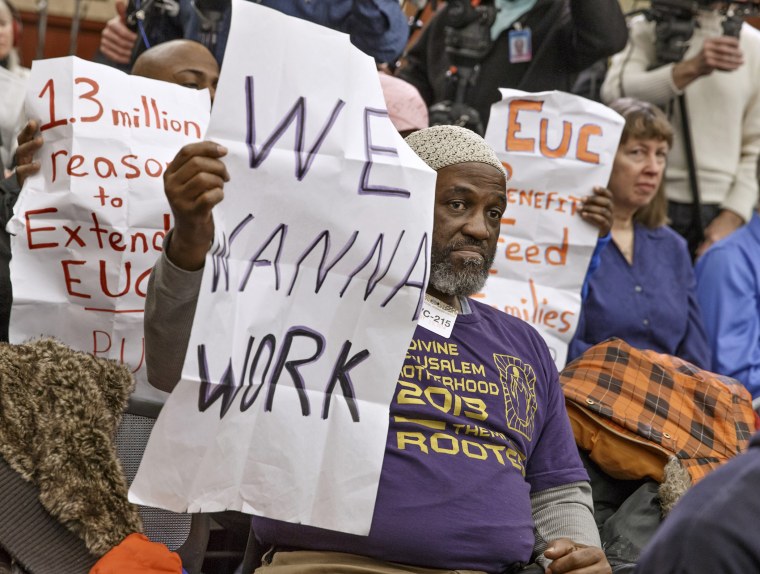It's been about a month since congressional Republicans allowed federal unemployment benefits to lapse for over 1.3 million Americans, but the issue hasn't gone away just yet, as evidenced by President Obama stressing jobless aid in the State of the Union this week.
To briefly recap recent developments on Capitol Hill, Senate Democrats originally proposed a three-month extension that could help those struggling most while Congress worked on a longer deal. It didn't include offsetting cuts, but then again, extended benefits without offsets has been the bipartisan norm for years without incident. The bill had majority support, but was blocked by a Republican filibuster.
Soon after, Democrats tried again with a year-long extension that was technically paid for, but it too was blocked by a GOP filibuster -- Republicans balked over procedural concerns after Democratic leaders said the GOP couldn't add extraneous and unrelated amendments to the bill.
Perhaps the third time will be the charm? Suzy Khimm reports on the latest effort to find a bill the Senate Republican minority will at least allow a vote on.
The main idea under consideration would offset an estimated $6 billion in benefits with an extension of pension changes that were originally incorporated into the 2012 highway funding bill. The change, known as "pension smoothing," raises money by reducing the contributions that private companies make to the federal government to insure their workers' pensions. The Washington Post first reported the development on Tuesday.Some have criticized the provision, arguing that the short-term gains risk future costs. But Republicans themselves have supported the idea in the past, proposing it as an offset for repealing Obamacare's medical device tax last fall, one Democratic aide pointed out.
Taking the lead on this is Sen. Jack Reed (D-R.I.), who's reportedly been in talks this week with Republican Sens. Susan Collins and Dean Heller. Note that Heller, the Nevada Republican, also co-sponsored the original three-month extension that his party later blocked.
Rumor has it the three were close enough to a deal that they hoped to see a Senate vote as early as next week. Time is of the essence -- another deadline looms.
As Khimm's report added, "Unless Congress acts before the end of January, an additional 310,000 will be cut off from aid, as their state benefits will expire without any federal backstop."
Of course, even if a Senate deal comes together and proponents are able to overcome the latest Republican filibuster, the aid would face an uncertain future in the House, where the Republican majority has made no secret of its outright hostility towards a jobless-aid extension.
Still, proponents will jump off that bridge when they get to it. They're working on the Senate deal now, then they'll start thinking about the House.
As for the details of "pension smoothing," Danny Vinik had a helpful piece summarizing what the policy is all about.
